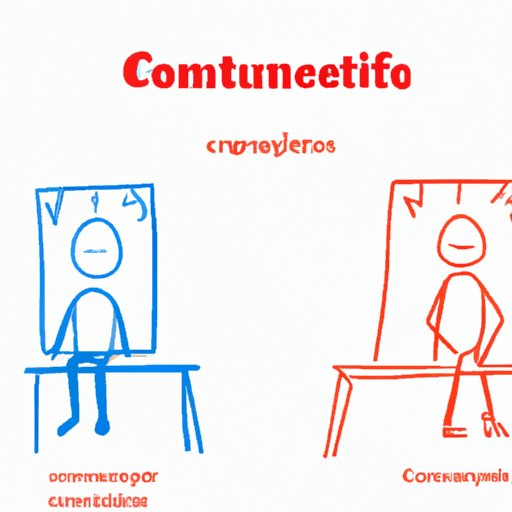Introduction
Self-consciousness is the feeling of being overly aware of yourself and how you are perceived by others. It can range from mild discomfort to extreme anxiety and may lead to feelings of low self-esteem and insecurity. If left unchecked, it can have a significant impact on one’s mental health and quality of life. However, there are several ways to overcome self-consciousness and gain greater confidence in yourself.
Avoid Comparing Yourself To Others
One of the most common causes of self-consciousness is comparing yourself to others. This can be especially difficult when faced with the seemingly perfect images we often see in the media or on social media platforms. It’s important to recognize these comparison traps and redirect your focus to something more productive and positive.

Focus On Your Strengths And Positive Attributes
Once you start to focus on your own strengths and positive attributes rather than those of others, you will begin to feel more confident in yourself. Identify the things that make you unique, and celebrate the small successes you achieve each day. This will help to give you a sense of accomplishment and purpose.

Challenge Negative Thoughts And Beliefs
It’s easy to get caught up in negative thought patterns when you’re feeling self-conscious. Take the time to identify these patterns and challenge them with positive thinking. Remind yourself that you are capable and strong, and replace any negative thoughts with positive ones.
Accept Compliments
Learning to accept compliments can be difficult, but it’s an important part of building self-confidence. Understand why it might be hard to take compliments and practice graciously accepting them. Acknowledge the compliment, thank the person, and allow yourself to feel proud of what you’ve achieved.

Engage In Activities That Boost Confidence
Confidence is often built through action. Find activities that you enjoy and that make you feel good about yourself. Whether it’s working out, painting, or playing an instrument, doing something that you’re passionate about can help to boost your confidence and reduce feelings of self-consciousness.
Find A Support System
Surrounding yourself with people who understand and support you can be invaluable in overcoming self-consciousness. Connect with family, friends, or even professionals who can provide encouragement and guidance. Having someone to talk to can make all the difference.
Practice Mindfulness
Mindfulness techniques are a great way to stay present in the moment and reduce anxiety. Practice breathing exercises, meditation, or yoga to help calm your mind and body. When you focus on being mindful, it’s easier to let go of worries and fears about the future.
Conclusion
Self-consciousness can be a difficult emotion to deal with, but it doesn’t have to define you. By avoiding comparison traps, focusing on your strengths and positive attributes, challenging negative thoughts, accepting compliments, engaging in activities that boost confidence, finding a support system, and practicing mindfulness, you can learn to be less self conscious and gain greater confidence in yourself. Remember that you are capable and strong, and don’t be afraid to reach out for help if needed.
(Note: Is this article not meeting your expectations? Do you have knowledge or insights to share? Unlock new opportunities and expand your reach by joining our authors team. Click Registration to join us and share your expertise with our readers.)
